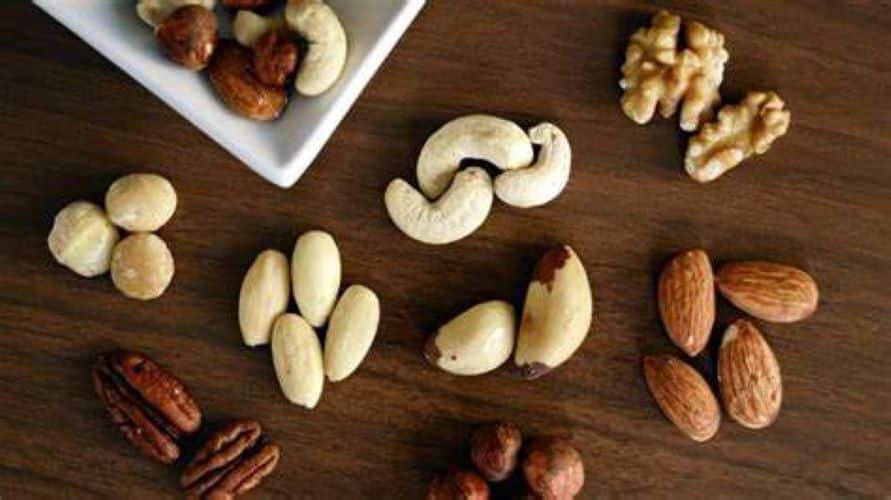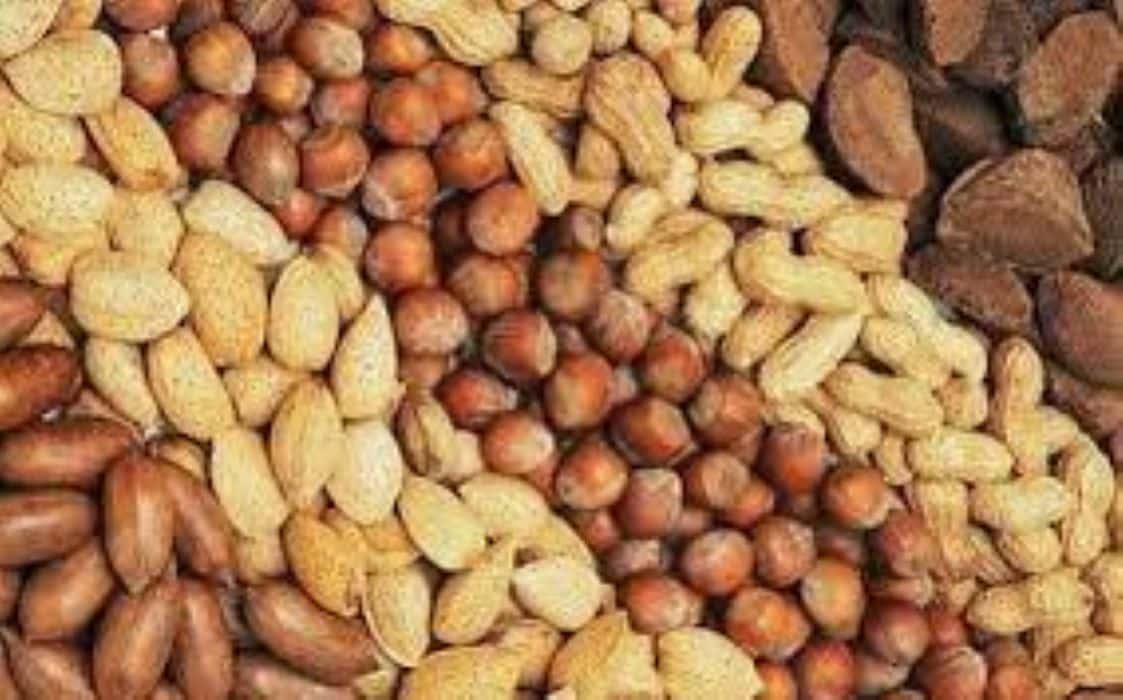Blog
Ultimate Guide to Eating Nuts for Health and Wellness

Nuts are a nutritious addition to a healthy diet. Unfortunately, nuts are also high in calories and fat. However, the good news is that eating nuts is associated with a lower risk of cardiovascular disease and type 2 diabetes. A study from 2012 found that people who eat at least one serving of tree nuts every week have lower levels of LDL or “bad” cholesterol than people who don’t eat tree nuts regularly. Eating nuts could also protect against heart disease because some studies show that tree nuts or walnuts may lower blood pressure and improve blood vessel function
Nuts are a nutritious addition to a healthy diet.
Nuts are a nutritious addition to a healthy diet. They’re rich in protein, fiber and healthy fats, as well as vitamins and minerals. Plus they have very few carbohydrates–a good thing for people who want to lose weight or have diabetes or other health conditions that require them to limit their carbohydrate intake.
Nuts are also an excellent snack option because they’re portable and easy to eat whenever you need something quick but nutritious (you don’t want those empty calories of potato chips).
Nuts have many health benefits, but they’re high in calories and fat.
Nuts are a good source of protein and fiber, as well as vitamins, minerals and antioxidants. However, nuts are high in calories and fat.
If you’re trying to lose weight or maintain your current weight, you might want to limit your intake of nuts because they’re so calorically dense. A 1/4 cup serving of almonds (about 23 nuts), for example, contains about 160 calories – that’s about 6% of what an average adult woman needs each day!
One ounce of nuts contains 160-170 calories and 14-17 grams of fat, depending on the nut variety.
Nuts are high in calories, fat and protein. One ounce of nuts contains 160-170 calories and 14-17 grams of fat, depending on the nut variety. For example, cashews contain 160 calories per ounce while walnuts contain 170.
While nuts are good for you, they should still be eaten in moderation because they are high in calories and fats. In fact, a recent study published by the American Heart Association found that people who ate about six ounces (one cup) of nuts every day for four weeks lowered their blood pressure by 4 mmHg systolic (the top number) and 3 mmHg diastolic (the bottom number), which is significant enough to reduce their risk for heart disease by up to 20%.
So what’s the best way to eat nuts? As a snack or as part of a meal. Whether you’re snacking on them alone or adding them to your favorite recipes, it’s important to remember that they are calorie-dense foods. So be mindful of portion sizes and don’t overdo it!
The good news is that eating nuts is associated with a lower risk of cardiovascular disease and type 2 diabetes.
The good news is that eating nuts is associated with a lower risk of cardiovascular disease and type 2 diabetes. Nuts are high in fat, but they’re good fats called monounsaturated and polyunsaturated fats that may help lower cholesterol levels. Eating nuts regularly may improve your overall health and reduce your risk for heart disease, diabetes and obesity.
Nuts are a great source of protein, fiber and vitamins. They’re also low in sodium and saturated fats. Nuts have a high nutrient density that makes them an excellent addition to your diet.
Nuts are a great snack because they’re easy to eat and can satisfy your hunger. They’re also low in calories and high in protein, fiber, healthy fats and antioxidants. Nuts can help control weight gain by increasing satiety while decreasing appetite-stimulating hormones, such as ghrelin.
Nuts can help control weight gain by increasing satiety while decreasing appetite-stimulating hormones, such as ghrelin. Nuts may also reduce the risk of heart disease and diabetes.
Eating too many nuts can add extra calories, so it’s important to stick to recommended portion sizes.
One of the biggest benefits of nuts is that they’re high in calories, so it’s important to stick to recommended portion sizes. A single serving of nuts is about one ounce (about one handful) or about 100 calories. If you eat five servings per day, this would add up to 500 calories and 20 grams of fat–about half as much fat as a serving of cheese or meat.
Nuts are also rich in other nutrients such as vitamin E and magnesium; however, studies show that people who eat more than one serving per day have higher rates of heart disease than those who don’t consume nuts at all
. In addition, nuts can be high in calories and fat. One ounce of almonds contains about 190 calories and 19 grams of fat, while pistachios have 160 calories and 15 grams of fat per ounce.
The good news is that nuts are still considered a healthy, low-calorie food choice. If you eat them in moderation and stick to one serving per day, they can be part of a healthy diet.
Nuts are high in calories, so it’s important to stick to recommended portion sizes. A single serving of nuts is about one ounce (about one handful) or about 100 calories. If you eat five servings per day, this would add up to 500 calories and 20 grams of fat–about half as much fat as a serving of cheese or meat. Nuts are also rich in other nutrients such as vitamin E and magnesium; however, studies show that people who eat more than one serving per day have higher rates of heart disease than those who don’t consume nuts at all . In addition, nuts can be high in calories and fat. One ounce of almonds contains about 190 calories and 19 grams of fat, while pistachios have 160
Nuts are high in fats, but they’re good fats called monounsaturated and polyunsaturated fats that may help lower cholesterol levels.
Nuts are high in fats, but they’re good fats called monounsaturated and polyunsaturated fats that may help lower cholesterol levels. Monounsaturated fats can help lower LDL (bad) cholesterol and polyunsaturated fats can help lower LDL cholesterol.
Nuts are also high in protein, fiber, vitamins and minerals like magnesium, copper and zinc. Magnesium is important for bone health; copper helps with iron absorption; zinc supports immunity functions including white blood cell production (immune cells).
Nuts are also a good source of vitamin E and heart-healthy fats. A study by the Harvard School of Public Health found that eating nuts at least five times a week may reduce the risk for heart disease by as much as 30 percent.
Nuts are an excellent source of protein, vitamins and minerals. They contain healthy fats that lower cholesterol levels and decrease the risk for heart disease. In addition to being high in calories, nuts are also high in calories; however, research shows that eating nuts can actually help people lose weight.
Nuts are an excellent source of protein, vitamins and minerals. They contain healthy fats that lower cholesterol levels and decrease the risk for heart disease. In addition to being high in calories, nuts are also high in calories; however, research shows that eating nuts can actually help people lose weight.
A study from 2012 found that people who eat at least one serving of tree nuts every week have lower levels of LDL or “bad” cholesterol than people who don’t eat tree nuts regularly.
Research has shown that people who eat nuts regularly have lower levels of LDL or “bad” cholesterol than those who do not eat them. In a 2012 study conducted on people in the US, those who ate at least one serving of tree nuts every week had an average LDL level that was 16 percent lower than people who didn’t eat tree nuts regularly.
The Mediterranean diet is one example of a healthy way to incorporate more tree nuts into your diet. The traditional Mediterranean diet includes olive oil as its main fat source, along with plenty of fruits and vegetables; whole grains such as wheat bread; fish; poultry; beans; and dairy products like cheese and yogurt (but not butter).
The Mediterranean diet is considered one of the healthiest ways to eat. It may be the key to living longer, with lower rates of heart disease, cancer and diabetes than people who don’t follow it.
In addition, the Mediterranean diet is rich in antioxidants, which may help protect against heart disease. Antioxidants are naturally occurring chemicals that can prevent damage to cells and DNA caused by free radicals—unstable molecules produced when the body breaks down food or harmful environmental toxins.
The Mediterranean diet is also high in fiber, which helps prevent constipation and diverticular disease. The diet’s emphasis on whole grains, legumes and vegetables may lower cholesterol levels.
Eating nuts could also protect against heart disease because some studies show that tree nuts or walnuts may lower blood pressure and improve blood vessel function.
Nuts are a healthy choice. They’re high in protein, fiber, and heart-healthy fats. And research shows that eating nuts may also protect against heart disease because some studies show that tree nuts or walnuts may lower blood pressure and improve blood vessel function.
Other health benefits of nuts include:
- Lowering risk of diabetes. Eating just one ounce per day reduces your risk by 20%.
- Preventing obesity by keeping you feeling fuller longer than other foods do–and helping you avoid overeating at meals later on in the day!
- Protecting against cancer by reducing inflammation in cells as well as lowering LDL (bad) cholesterol levels in your body
. Nuts are also a good source of vitamins, minerals and plant compounds called phytochemicals. They may protect against heart disease by lowering cholesterol levels, reducing inflammation in cells, lowering blood pressure and improving blood vessel function.
In addition, nuts may protect against diabetes and cancer by reducing inflammation in cells as well as lowering LDL (bad) cholesterol levels in your body. Nuts are also a good source of vitamins, minerals and plant compounds called phytochemicals.
Eating nuts regularly may improve your overall health and reduce your risk for heart disease, diabetes and obesity!
Nuts are high in calories and fat, so you should eat them in moderation. However, nuts have many health benefits. They’re high in monounsaturated and polyunsaturated fats that may help lower cholesterol levels, reduce inflammation and prevent heart disease (1).
Nuts are also a good source of protein, fiber and antioxidants such as vitamin E (2). Nuts contain magnesium (a mineral) as well as copper, which may help protect against bone loss (3). In addition to their nutritional value, nuts are tasty when added to salads or baked into desserts!
Nuts can be enjoyed as an afternoon snack or added to your favorite recipes. They are also available in a variety of flavors such as spicy, sweet and salty.
Nuts are high in calories, so they should be eaten in moderation. They can also be fattening if you eat too many! However, nuts also contain lots of healthy fats and protein, which help keep you feeling full longer.
Nuts are a good source of fiber and protein. They may also help lower cholesterol levels, reduce inflammation and prevent heart disease (1). Nuts are high in calories and fat, so they should be eaten in moderation.
Nuts are high in calories and fat, so they should be eaten in moderation.
They are also available in a variety of flavors such as spicy, sweet and salty. Nuts can be enjoyed as an afternoon snack or added to your favorite recipes. They are also available in a variety of flavors such as spicy, sweet and salty. Nuts are high in calories, so they should be eaten in moderation.




